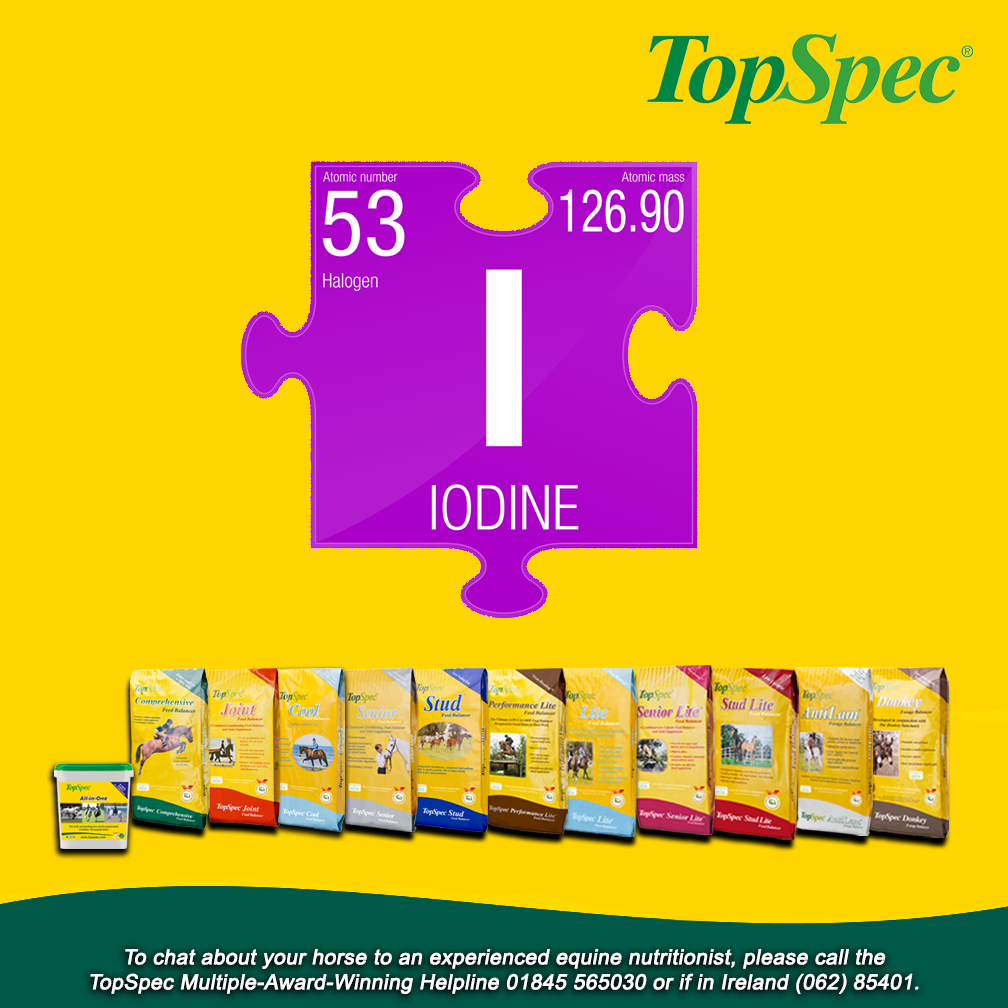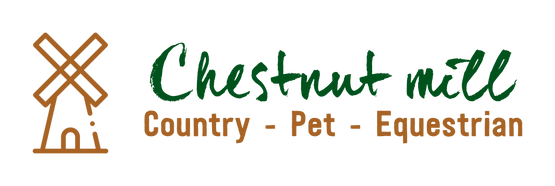From £6.99

The Role of Iodine in a Horses Diet - Horse Supplements
Iodine is very well known as it is contained in thyroid hormones e.g. thyroxin, a powerful hormone, contained largely in the thyroid gland, which controls growth and is essential for healthy metabolism, thermoregulation and reproduction. Therefore iodine is also essential for all these functions. During pregnancy, the placenta concentrates iodine and acts as a store of iodine for the developing foetus. Mare’s milk also contains a concentrated source of iodine for the foal.
Both under- and over-supplementation of iodine throughout pregnancy can result in thyroid dysfunction and serious problems for the newborn foal. However in the UK over-supplementation is seen more commonly.
Seaweed is a rich source of iodine but because the level of iodine it contains varies enormously. TopSpec nutritionists do not recommend that pastures used for broodmares and foals are fertilised with calcified seaweed as mares and foals can develop goitre (enlargement of the thyroid gland on both sides of the throat) usually from excess iodine in their diet. Equally using supplements containing seaweed for breeding stock is not something we could recommend.
Requirements for iodine although small, increase for broodmares, youngstock and horses working hard. Deficiency is rarely seen but easily induced experimentally and also occasionally by goitrogenic substances. Deficiency and toxicity may result in similar symptoms including goitre and foals born with a rough hair coat and developmental deformities.
Iodine is a trace element with only a small difference between the level a horse requires and the level that can cause toxicity and therefore should be included in feeds and supplements with particular caution. The EU maximum permitted level is only 4mg/kg dry matter in the total diet.

